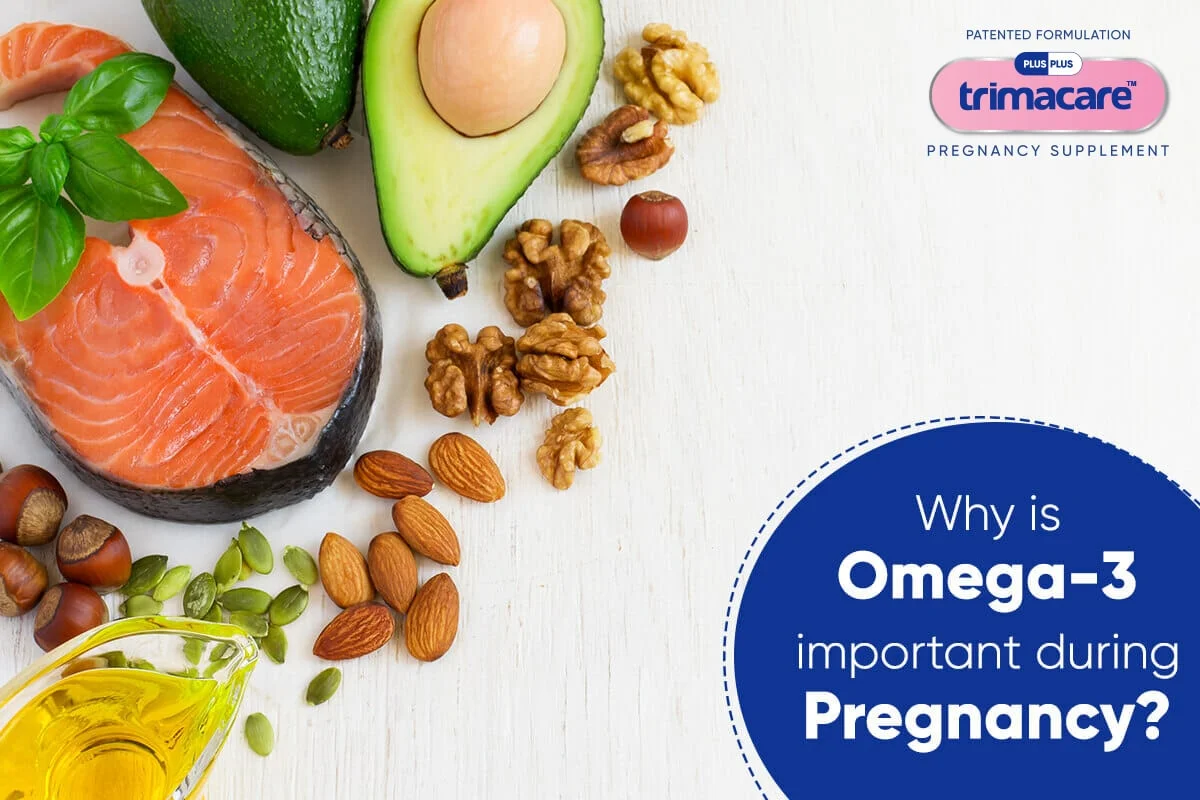Ensuring proper nutrition during pregnancy is essential for both maternal health and the baby’s development. Among the vital nutrients, omega-3 fatty acids stand out for their crucial role in supporting brain, eye, and nervous system development, along with boosting maternal well-being.
What Are Omega-3 Fatty Acids?
Omega-3s are essential polyunsaturated fats that the human body cannot produce on its own. They must be obtained through diet or supplements. The three key types are:
- ALA (Alpha-linolenic acid): Found in flaxseeds, chia seeds, walnuts, and plant oils.
- EPA (Eicosapentaenoic acid): Found in fatty fish and fish oil.
- DHA (Docosahexaenoic acid): Predominantly found in fatty fish and algae, critical for brain and eye development.
These are known collectively as the 3 omega 3 fatty acids. During pregnancy, DHA and EPA are particularly important as they are the most biologically active forms and directly support fetal growth. Together, these omega 3 fatty acids provide a foundation for many essential bodily processes.
Why Are Omega-3 Fatty Acids Important During Pregnancy?
Omega 3 fatty acids benefits during pregnancy include:
- Fetal Brain & Eye Development: DHA is a primary component of the retina and brain, making it vital for the baby’s cognitive and visual development.
- Supports Full-Term Delivery: Adequate omega-3 intake may reduce the risk of preterm birth.
- Promotes Maternal Mental Health: Omega-3s help regulate mood by supporting serotonin production, potentially reducing the risk of postpartum depression.
- Cardiovascular Health: Helps maintain healthy cholesterol and blood pressure levels.
- Reduces Risk of Allergies in Infants: May lower the chances of eczema and food allergies.
- Hormonal Balance and Anti-Inflammatory Effects: Omega fatty acids benefits include reduced inflammation and smoother hormone regulation.
These omega 3 advantages make it essential for mothers to consider both dietary sources and high-quality omega 3 dietary supplements.
Omega-3 Deficiency in Indian Pregnant Women
Many Indian women, especially vegetarians, have low intake of omega three fatty acids due to minimal seafood consumption and a lack of knowledge about foods with omega 3 fatty acids. Indian diets are often high in Omega-6 (like soybean and sunflower oil), leading to an imbalance that could affect fetal development.
When Should You Start Taking Omega-3 in Pregnancy?
From the first trimester, the baby’s brain begins to develop rapidly. DHA requirements increase as pregnancy progresses. By the third trimester, rapid growth of the baby’s brain and retina requires a consistent supply of DHA. Continued omega-3 intake up to 12 months postpartum is highly recommended, especially during breastfeeding, since omega three fatty acids are naturally present in breastmilk.
Omega-3 Rich Foods for Pregnancy
Including foods that have omega 3 in your diet helps meet daily requirements:
Seafood (Low in Mercury):
- Salmon
- Sardines
- Anchovies
- Shrimp
Plant-Based Sources (ALA):
- Flaxseeds
- Chia seeds
- Walnuts
- Soybeans
- Canola oil
These omega fatty acids foods are beneficial, though vegetarians may still require an omega 3 supplement to ensure sufficient EPA and DHA intake.
Choosing the Best Omega-3 Supplement for Pregnancy
While natural sources are essential, omega 3 tablets and omega three supplements help fill any nutritional gaps. When choosing an omega 3 fatty acid capsule, keep the following in mind:
- Purity & Safety: Choose products free from mercury and contaminants.
- EPA/DHA Ratio: A 2:3 ratio is ideal for pregnancy.
- Form: Omega 3 capsules and omega 3 fatty acid tablets are commonly used. Vegetarian options from algae are suitable for those avoiding fish.
- Consistency: Take your omega fatty acids tablets with meals for better absorption.
Recommended Omega-3 Supplement in India: Trimacare™
Trimacare™ by PlusPlus Lifesciences is a specially formulated supplement tailored to Indian pregnant women:
- Designed for each trimester: Trimacare 1, 2, and 3
- Contains over 20 essential nutrients, including the advantage of omega 3 fatty acid for mother and child
- Offers a vegetarian source of omega 3 derived from deep-sea algae
- Includes EPA and DHA in the golden 2:3 ratio
- No fishy aftertaste, burps, or side effects
- Available online (Amazon, Flipkart, 1mg) and at leading pharmacies
Trimacare™ eliminates the need for multiple pregnancy tablets, making it a convenient all-in-one solution.
Why Continue Omega-3 Postpartum?
Even after delivery, omega 3 remains crucial:
- Enhances breastmilk with DHA
- Supports faster physical recovery
- Reduces inflammation and supports mood regulation
- Helps prevent postpartum depression
Doctors recommend continuing with omega 3 fatty acid capsules, omega three fish oil, or fish oil tablets for at least 6–12 months postpartum, especially if breastfeeding.
Common Mistakes to Avoid
- Choosing poor-quality or contaminated omega 3 supplements
- Not checking DHA/EPA content in omega three supplements
- Inconsistent consumption of omega 3 capsules or skipping doses
- Relying only on omega fatty acids tablets and ignoring omega fatty acids foods
- Taking omega 3 tablets without medical guidance
FAQs
- How much omega-3 should a pregnant woman consume daily?
200–300 mg of DHA per day, often provided by an omega 3 fatty acid capsule or omega three fish oil. - Can omega-3 reduce allergies in babies?
Yes, studies indicate omega three benefits include lowering the risk of eczema and food allergies. - Is omega-3 safe during pregnancy?
Yes, when taken in appropriate amounts and as part of recommended pregnancy tablets. - What are signs of omega-3 deficiency in pregnancy?
Mood swings, dry skin, fatigue, poor focus, and developmental delays in the baby.
Final Thoughts
Omega-3 fatty acids are essential for a healthy pregnancy journey. The omega 3 benefits range from fetal development and maternal wellness to long-term cognitive and emotional advantages for the child. Including foods with omega 3 fatty acids and using a high-quality omega 3 dietary supplement like Trimacare™ can ensure complete nutritional support.
Always consult a healthcare professional before beginning any omega three supplements or pregnancy tablets to tailor the dosage to your unique needs.












